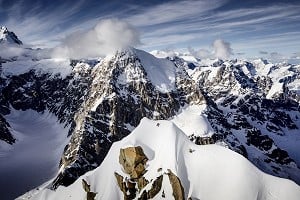In reply to Phil1919:
I suppose what I'm (slightly) cynical about is the collective view that; Biodiversity = something good.
Nature or natural evolution doesn't care much. After all biodiversity is simply a human description of something humans appreciate but the countless organisms living our planet do not.
The description of outer space is a good one yet it is something many humans appreciate and value.
Same with geology really. Some folk like, gold, others metals. Some just like coal. I just like looking at rocks and touching them.
There are vast areas of our uplands which are as Mr Monbiot suggests largely desert is rather skewed. I've recently come back from a long paddling trip through Northern Canada's boreal forest. The part I paddled through, the Missinaibi R. is pretty much as nature left it.
I listed Bald Eagle, three species of duck, two different divers, three finches and so on. In total of about 14 bird species.
There were about 4 species of fish in the river where I paddled. There are at least 12 in our local rivers!. Flowering plants were few and far between as its mostly forest. But its natural and Yorkshire isn't.
My average count when I do my twice annual bird survey on our dessert which is the North York Moors normally includes:-
Meadow Pipit, grouse, skylark, curlew, carrion crow, wheater Pied wagtail, stonechat, wood pidgeon, reed buntin,swallow, snipe, black headed gull and so on. But certainly more species than I counted in the boreal forests which are natural. And of course our moorlands are entirely man made.
I suppose you could ask yourselves the value of one rhino, one zebra and one elephant grazing on grassland over say, three bison grazing over the same amount of grassland. There are clearly more species grazing the plains of africa than there are or were, the plains of North America. Does that follow that African biodiversity on the plains is more valuable than North American biodiversity on the plains.
Likewise, the boreal forests of europe and canada have far, far fewer species of trees (less than 20) than the rain forests of south america and asia (greater than 1000 tree species).
Keep us, man from interfering in our countryside and it will all eventually become trees. No more skylarks, partridges, snipe, grouse, curlew, dunlin, rooks, pidgeons, linnets, goldfinches and so on. This is the natural succession and order of things. They'll all die out as their life cycle depends on open lands. Of course the number of woodland specialists will increase but we already probably have our full species count of woodland birds. Species numbers won't increase, simply the total number of less species.
More species doesn't mean better. Just different.
Post edited at 15:36









